
While Canada has traditionally ranked quite well in sustainable development areas like quality of urban life and education compared with other wealthy nations, some areas, like greenhouse gas emissions, have presented more of a challenge.
But from gold mining that actually helps to restore the environment, to private companies providing electric vehicle charging stations for their employees, and government funding to provide cleaner energy to remote communities, some truly inspirational work is taking place. We take a look at just a few recent Canadian sustainable initiatives that are looking to move the needle further in the right direction!
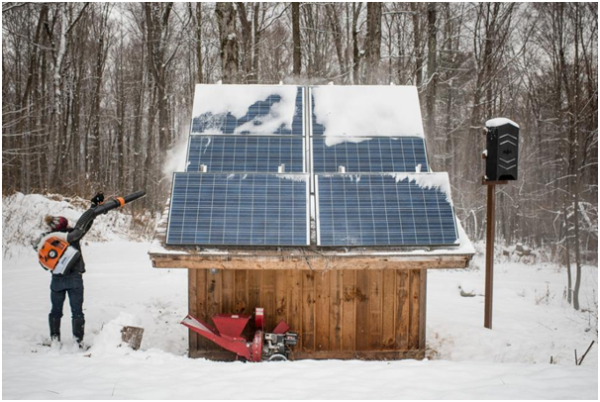
Clean power infrastructure for remote communities
Many remote indigenous communities in Canada rely on diesel fuel as their main source of electricity. Now, thanks to an $11 million grant from the government, Hydro-Quebec will be working with 13 communities in northern Quebec to change that. The funds will go towards a smart-grid project, the implementation of more sources of renewable energy, and new battery storage systems. By 2030, the project hopes to reduce the communities’ use of diesel by 800,000 liters per year, and lower carbon emissions by 7,500 tons.
Apple and Tiffany & Co partner with RESOLVE to source sustainable Salmon Gold from Canada’s Yukon
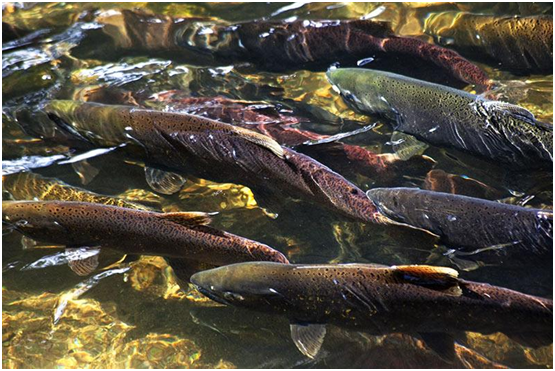
While gold mining and environmental conservation have never quite gone hand in hand, a fascinating initiative by non-profit RESOLVE is giving companies the chance to obtain this precious metal while helping to restore the environment.
By combining sustainable re-mining with the restoration of salmon spawning runs in Alaska, British Columbia and the Yukon, the idea is to allow nature to reintroduce itself and for indigenous fish species like salmon and grayling to return.
Jewelry giant Tiffany & Co, and Apple (which uses small amounts of gold in some of their electrical components) have already jumped onboard, and RESOLVE expects to source over 1,000 ounces of Salmon Gold this year. Apple will also be making use of blockchain technology to track the gold through their supply chain, all the way back to the source mine and refiner.
More durable roads through cellular confinement systems (geocells)
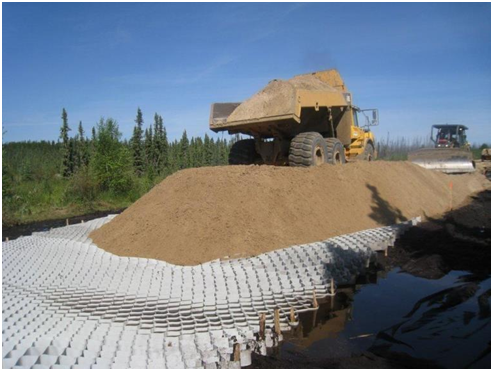
Image source: https://www.prs-med.com/en-ca/geocells/cellular-confinement-system/
Many regions in Canada have vast areas of soft peat soil, which makes the construction of roads -especially durable and long-lasting roads- difficult. In addition, traditional construction techniques call for large volumes of high-quality aggregate to be hauled in for use as infill when local soil is unsuitable. This increases both the cost and carbon footprint of the project.
Now, geocell road design in Canada is allowing the process of building new roads to become more sustainable both during and after construction. Through the use of these honeycomb-like geocell layers, lower quantities and qualities of infill (such as locally available sand, soil, or even recycled asphalt paving) can be used in the soil stabilization process – lowering cost, fuel use, pollution and the carbon footprint of the project while extending the road’s lifespan and reducing the need for future maintenance and repairs.
Bell Canada adds over 40 electric vehicle charging stations for employees
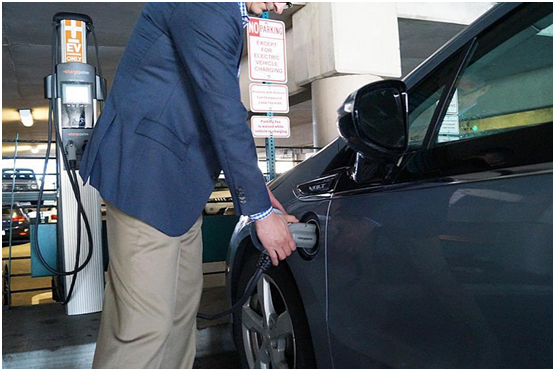
Sustainable initiatives aren’t just a way for large companies to play their part in the fight against climate change, they’re a good way to attract and retain top talent too. In an effort to support electric vehicle adoption and improve employee satisfaction, Bell Canada has installed 24 EV charging stations at their Nun’s Island, Montreal headquarters, as well as several others across their network of branches. And it’s worked – since installing the charging stations, the number of Bell employees driving electric vehicles has more than quadrupled.
The Great Canadian Shoreline Cleanup
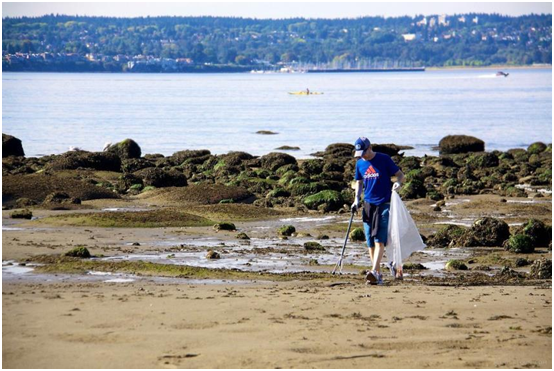
In 1994, employees and volunteers at the Vancouver Aquarium embarked on a beach cleanup in Stanley Park. The word has spread in a big way – and since then, some 800,000 volunteers have collected a whopping 1.3 million kilograms of trash in 21,300 cleanups from coastal and freshwater shorelines across the country.
Now running in partnership with WWF Canada, tens of thousands of Canadians now participate, demonstrating the public’s eagerness to get on board with sustainability initiatives, get their hands dirty, and play their part in promoting awareness of the global plastic crisis. The Great Canadian Shoreline Cleanup is now recognized as one of the largest direct action conservation programs in Canada.
Farm Fresh Food Hub (FFFH) aims to create a more sustainable food system in Manitoba
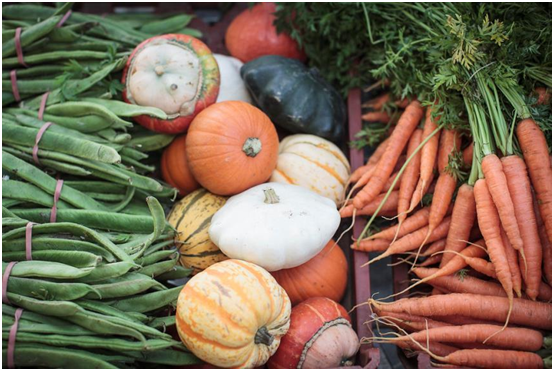
The South Osborne Farmers’ Market, led by Farm Fresh Food Hub, returned for its fourth run earlier this year, providing a space for the community to engage with ecologically sustainable food producers and each other. Since 2016, the SOFM has grown from 8 vendors to over 40, offers several eco-friendly initiatives, and also hosts a bi-weekly speaker series, “Chew on this!” which explores important issues around food production, from better utilization of indigenous foods to food justice.
